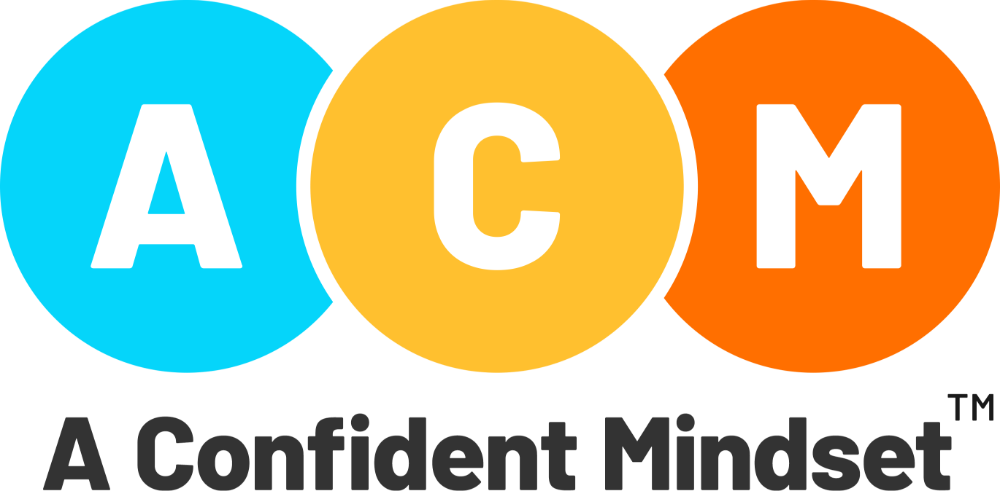
The Secret to Confidence: Celebrate Progress, Not Perfection
May 14, 2025When we think about confidence, we often imagine someone delivering a flawless speech, facing a test, or stepping into the spotlight. And while those moments matter, confidence is built long before that, in the steps we take when no one is watching.
Here’s the truth we don’t hear often enough: Confidence isn’t about getting it right. It’s about being willing to try. Again. And again. And again.
If you’re waiting to be perfect before you feel confident, you’ll be waiting forever.
Why Visualization Alone Isn’t Enough
Yes, visualization is powerful—it helps us imagine success and encourages motivation. But if we only focus on the “perfect outcome,” we miss the process that actually builds confidence.
Confidence doesn’t come from being fearless. It comes from taking one brave step at a time, stumbling, learning, adjusting, and growing stronger along the way.
That’s why courage is the first step of A Confident Mindset™. Without it, we freeze. With it, we push forward.
Progress > Perfection Every Time
Confidence is about trusting in your abilities enough to start—even when the outcome isn’t guaranteed. That’s where the magic happens. Every effort, every improvement, every “I showed up today even though I was nervous”—that’s what builds self-confidence.
When we celebrate small wins, we build resilience. We remind ourselves that we’re growing, we’re learning, and we’re capable—even if we’re not “there” yet.
That mindset changes everything.
How to Model Progress Over Perfection
Whether you’re a parent, educator, or coach, you can help both kids and adults reframe what it means to be “confident.”
Here’s how:
- Celebrate effort, not just outcomes. Did your child try out for the team? Speak up in class? Offer a kind word? That’s progress worth celebrating.
- Talk back to the inner critic. When you hear “Not good enough,” respond with, “Maybe not yet. But I’m learning. I’m growing.”
- Track the journey. Keep a journal of small wins. Let children see how far they’ve come—not just where they still want to go.
- Be a mirror. Reflect back to others what you see in them—the courage, the commitment, the growth. Sometimes, they need your words to believe their own.
Confidence Takes Practice
At A Confident Mindset™, we teach that confidence is not something you have or don’t—it’s a process. One that starts with courage, is guided by character, and strengthened through commitment. When we shift the focus from perfection to progress, we create space for transformation—for kids, for adults, for all of us.
So next time you find yourself or someone you care about stuck in self-doubt, remember this: You don’t need to be perfect to be confident. You just need to keep showing up. Keep trying. Keep growing.
Confidence doesn’t come from never falling. It comes from knowing you can get back up.
Need further support in helping instill confidence?
Check out www.aconfidentmindset.com, where we help parents, educators, and other well-meaning adults empower the next generation with tools to unlock a child’s full potential!
Also, explore our K–8 school program and Confidence Coach Certification—two transformational programs designed to equip adults with everything they need to nurture lasting confidence in kids.
Frequently Asked Questions
Why is focusing on progress more powerful than chasing perfection?
Because progress celebrates effort. It gives kids (and adults) something to build on. Perfection shuts things down. Progress says, Keep going.
How can I support my child when they’re discouraged by mistakes?
Normalize the messy middle. Remind them: everyone starts somewhere. Mistakes are part of learning. Focus on effort and keep the conversation open and judgment-free.
What if my child is a perfectionist and beats themselves up over tiny errors?
Model the mindset you want to teach. Share your own “progress over perfection” stories. Praise their courage to try, not just their results. Over time, this rewires their inner dialogue.
How does A Confident Mindset™ help kids shift their mindset?
Through tools, language, and experiences rooted in the ACM framework. Kids learn to take risks, reflect on growth, and recognize that confidence is built—not born.

